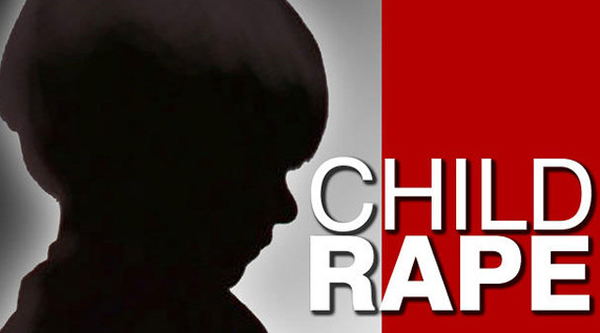Harnessing disruptive genius

Stanely Mushava Literature Today
Zimbabwe’s cultural institutions not only betrayed Dambudzo Marechera and Biggie Tembo in their lifetime but are doing them greater injustice in reducing their memory to street legend rather than their actual work.
Dambudzo Marechera was a spark in the galaxy of Zimbabwean art – intense, different but short-lived.
That occasional star whose lone splendour spirals out to a black hole no sooner than it emerges, Marechera continues to provoke not only memory of what he was but fantasy of what he could have been.
The tragic angles of his brief existence can be aggregated to talent, promise, betrayal, rebellion, self-destruction and wasted genius.
A lament is often made that the novelist’s early death – ostracised, frustrated and self-destructive – reflects badly on Zimbabwean institutions’ failure to recognise and maximise talent.
It would be no mean feat to qualify the lament as a unit, given the vast extent to which the avant-garde novelist scripted his own tragedy, but Marechera’s war with himself and Zimbabwe’s indifference to its talent can be separately established.
Nonetheless, a sense of loss is routinely expressed among admirers in both the literati and the twitterati – Zimbabwe’s cyber proletariat in its default cynic mode as well the tedious corpus of academia.
“What makes the loss even more tragic is the fact that there is no certainty of what exactly was lost in him. Marechera’s career ended before it had truly started, the readers left with an uncertainty about his potential outputs,” observes Finnish post-colonial researcher Dr Anna-Leena Toivnen.
Creative writing and media academic Dr Nhamo Mhiripiri hazards an unlikely guess in conversation with Dambudzo Marechera Trust chairperson Dr Tinashe Mushakavanhu.
“Just imagine a 50-year-old Marechera, probably a dotting grandpa. He could have mellowed down and changed his ideas and philosophy. It happens. Tolstoy turned into a Christian fundamentalist in his old age,” Dr Mhiripiri speculates.
Touched with fire and insulated from convention, Marechera belongs to that stellar cast of cultural actors lately classified as disruptive geniuses.
His story, which borders on the mythic in more ways than one, can be said to have its music parallel in Biggie Tembo.
Not only did both men enjoy massive cross-over appeal, showered with generous superlatives as the best of their worlds; both died young (Marechera died 35; Tembo, 37), laden with raw promise.
Rather early, both seemed past their best days, having conquered London but struggling to attract attention, let alone sustained interest, back home in Harare.
Even as posthumous legends, Marechera and Tembo apparently enjoy greater critical and commercial reception outside Zimbabwe.
A second generation ambassador of Zimbabwean literature to Europe during the days of the African Writers Series, Marechera’s award-winning first novel, “House of Hunger”, caused no mean stir in London and Berlin.
He continues to be the object of a sustained literary post-mortem with books, plays, articles and commemorative magazines authored in his memory.
Ironically, of his six books, only “Mindblast”, his last published work during his lifetime, is available with the publisher, a cumbersome trip away from the city centre.
Tembo’s music is also hard to come by, with the exception of Bhundu Boys’ “Early Hits”, possibly because some of the material was done outside the country.
“Shabini”, the breakthrough album by the Bhundu Boys, is said to be the bestselling Shona album in the United Kingdom but it is not available in Zimbabwe.
In this regard, misfortune seems to stalk both Marechera and Tembo beyond the grave.
Zimbabwe’s cultural institutions not only betrayed the artistes in their lifetime but are doing them greater injustice in reducing their memory to street legend rather than their actual work.
A further indictment is that it apparently took foreign promoters to prime both Marechera and Tembo to international stardom when they may have remained obscure regulars on their home turf.
When their stories are told, they peak with honours accorded in offshore territories rather than at home.
Both men suffered from mental issues in their last days, distress over lack of success at home largely contributing.
Poor reception for Marechera’s work in Harare was a source of distress during his last days, while Tembo also confided to the Shed Studios proprietor that the failure of his last solo album had flipped a bolt in his mind, landing him in a mental institution.
A similarity which has been seldom explored are the spiritual conspiracy theories at the heart of both men’s problems.
Marechera’s elder brother, Michael, relates a story of betrayal in Flora Veit-Wild’s “Dambudzo Marechera: A Source Book on his Life and Work”.
“When we buried Tambu (Dambudzo), I was an angry man. For some years, I was aware that there was a family secret that people wanted to keep hidden,” Michael said.
The family secret, according to Michael, begins around 1850 when Marechera’s great-grandmother from the maternal side was accused of being a dangerous witch and tied to a tree to be torn apart by wild animals.
When the woman’s “spirit” visited vengeance on her family, a beer ceremony was held and Marechera’s mother, then a young girl, was chosen to be “spirit’s bride” as the price of appeasement.
“Towards the end of 1969, Mother became mad. She went to consult a n’anga who told her that she could only get rid of the problem by passing it on to one of her children … She chose Dambudzo,” Michael relates.
According to Michael, Marechera’s mental issues set in two years later.
He had the illusion of being stalked everywhere and had to live on tranquillisers.
In hindsight, Michael thinks a suspicion to that effect must have falsified human relationships for Marechera and led him to shut out society and its expectations from his workspace.
However, Marechera’s tortured childhood in the heart of extreme poverty, crime and prostitution in Rusape clearly contributed no mean stake to his life-long troubles.
Biggie Tembo had his own share of spiritual disasters. In the days leading to his death, he confessed on television to being tormented by demons.
Having been forced out of Bhundu Boys and trying to recast himself at some point into a stand-up comedian, he confessed while in the UK: “It was because spiritually I was losing the battle like everyone else.
“So much that I ended up in the psychiatric unit of a hospital in Bristol at one stage. I was under so much stress I could not cope.”
According to Elton Mjanana’s documentary, while still struggling to come to terms with his scuttled music fortunes, Tembo learnt that the man who had raised him was not his actual father.
The disclosure was no small devastation for a man who had long practised ancestral worship through his supposed genealogy. Insomniac and compulsively alcoholic, he gave in to full-blown mental illness.
Briefly on the mend, he took to preaching and speaking in tongues on public transport, but his dark side was to prevail, culminating in his suicide.
The misery of it all is keenly captured in dark songs such as “Kutambura”, “Zvandinetsa” and “Ndingazviite Sei”, recorded with the Bhundu Boys and his two solo projects in Harare.
Both artistes, for all their narcissistic and disruptive approach to life and art, were weighed down by the vagaries of history, spiritual warfare and the indifference of their industries, during their last days.
While Tembo kept his disturbance outside the studio for the most part, with at the glaring exception of “Wakasikirei Satan”, Marechera’s work often gives away a dark and deranged pysche.
What stands out for attention in both tragedies is genuine talent which could have been further exploited in different circumstances.
Maybe some of what came across as reprehensible, particularly in Marechera’s curse, was a subconscious cry for help, a frantic reaction to backstage ghosts taking a life of their own.
Zimbabwe is laden with raw talent, emerging and established, which it is the mandated responsible levers of the creative industries to recognise, harness and maximise.










Comments